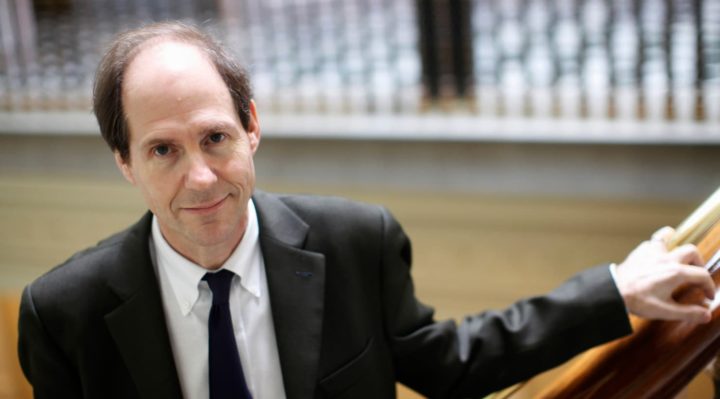 (Bergen, Norway) – The Holberg Prize was conferred upon Harvard Law Professor Cass Sunstein by HRH Crown Prince Haakon of Norway.
(Bergen, Norway) – The Holberg Prize was conferred upon Harvard Law Professor Cass Sunstein by HRH Crown Prince Haakon of Norway.
At a prestigious award ceremony in the University Aula in Bergen, Professor Cass Sunstein received the international research award from HRH Crown Prince Haakon of Norway.
The Holberg Prize is worth NOK 6 million (approx. USD 740,000) and is awarded annually for outstanding contributions to research in the arts and humanities, social sciences, law or theology.
“I am more honored than I can say to receive the Holberg Prize,” said the Laureate. “Of course, the Prize is shared with terrific coauthors, colleagues, teachers, students, friends, and family. It is both an honor and a joy to pay tribute to them right now.”
Supporting human dignity through deliberation
Sunstein will receive the Holberg Prize for his wide-ranging, original, prolific and highly influential research. Not only has his research redefined several academic fields; it has also had a far-reaching impact on public policy. His scholarship spans several major areas: constitutional law and democratic theory, behavioral economics and public policy, legal theory and jurisprudence, administrative law, and the regulation of risk. In particular, Sunstein’s academic work has reshaped our understanding of the relationship between the modern regulatory state and constitutional law.
In his acceptance speech, Sunstein recounted how he—while working on constitutional law in the early 1980s—saw a pattern with respect to legal doctrines and such considerations as equality, liberty, property, religion and freedom of speech: “There was a single foundation for each and every one of them,” said the Laureate, “Whenever burdens are to be imposed, or benefits to be given, it must be for some public-regarding reason. In other words, government must offer an intelligible justification for hurting or helping people.”
Sunstein described how this democratic principle connected with human dignity, equality, freedom, as well as “the deepest foundations of the world’s great constitutional orders.” “It is,” said the Laureate, “at the heart of the idea of deliberative democracy – a system of government that combines political accountability with an insistence on reason-giving.” “In deliberative democracies,” Sunstein continued, ”what matters is not power but what an earlier Holberg Laureate, Jürgen Habermas, calls ‘the forceless force of the better argument.’”
About the Laureate
Cass R. Sunstein (b. 1954) is currently the Robert Walmsley University Professor at Harvard University. He is the founder and Director of the Program on Behavioral Economics and Public Policy at Harvard Law School.
From 2009 to 2012, he was Administrator of the White House Office of Information and Regulatory Affairs, where he helped oversee a wide range of reforms involving safety, air quality, civil rights, open government, climate change, economic opportunity, health, and reduction of poverty.
Mr. Sunstein has been involved in constitution-making and law reform activities in many nations. His government service includes membership on President Barack Obama’s Review Group on Intelligence and Communications Technologies (2013) and the U.S. Department of Defense’s Innovation Board (2016-2017).
Mr. Sunstein is author of hundreds of articles and dozens of books, including Republic.com (2001), Risk and Reason (2002), Why Societies Need Dissent (2003), The Second Bill of Rights (2004), Laws of Fear: Beyond the Precautionary Principle (2005), Worst-Case Scenarios (2001), Nudge: Improving Decisions about Health, Wealth, and Happiness (with Richard H. Thaler, 2008), Simpler: The Future of Government (2013), Conspiracy Theories and Other Dangerous Ideas (2014), The World According to Star Wars (2016), The Ethics of Influence (2016), #Republic (2017), Impeachment (2017), Legal Reasoning and Political Conflict (2d. ed. 2018), and The Cost-Benefit Revolution (forthcoming 2018). He is now working on various projects on the relationship between social norms and social change.
